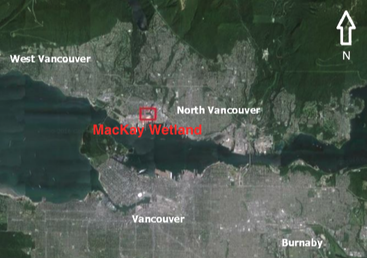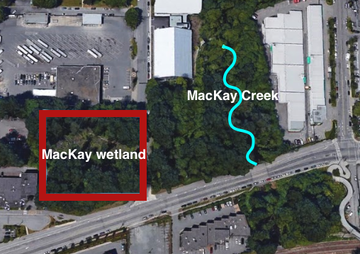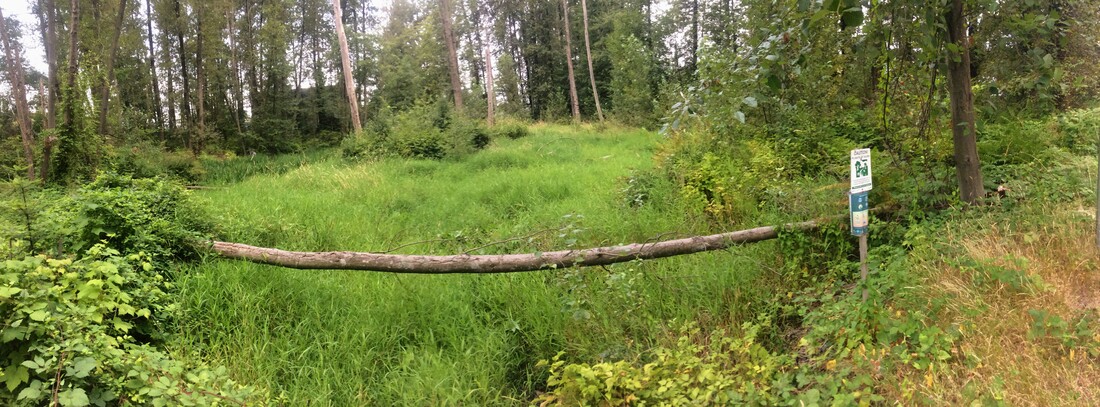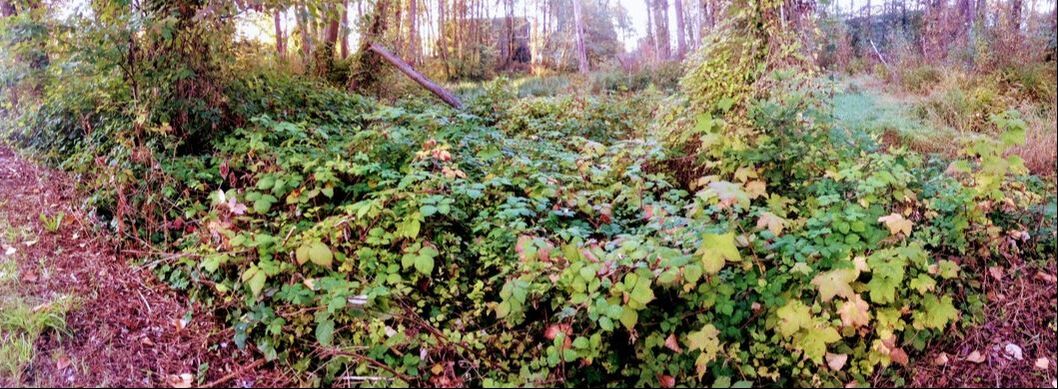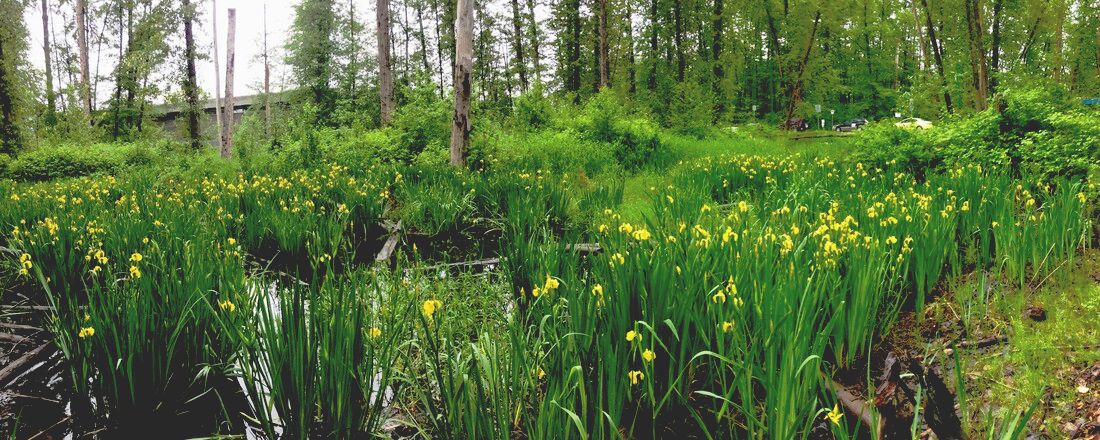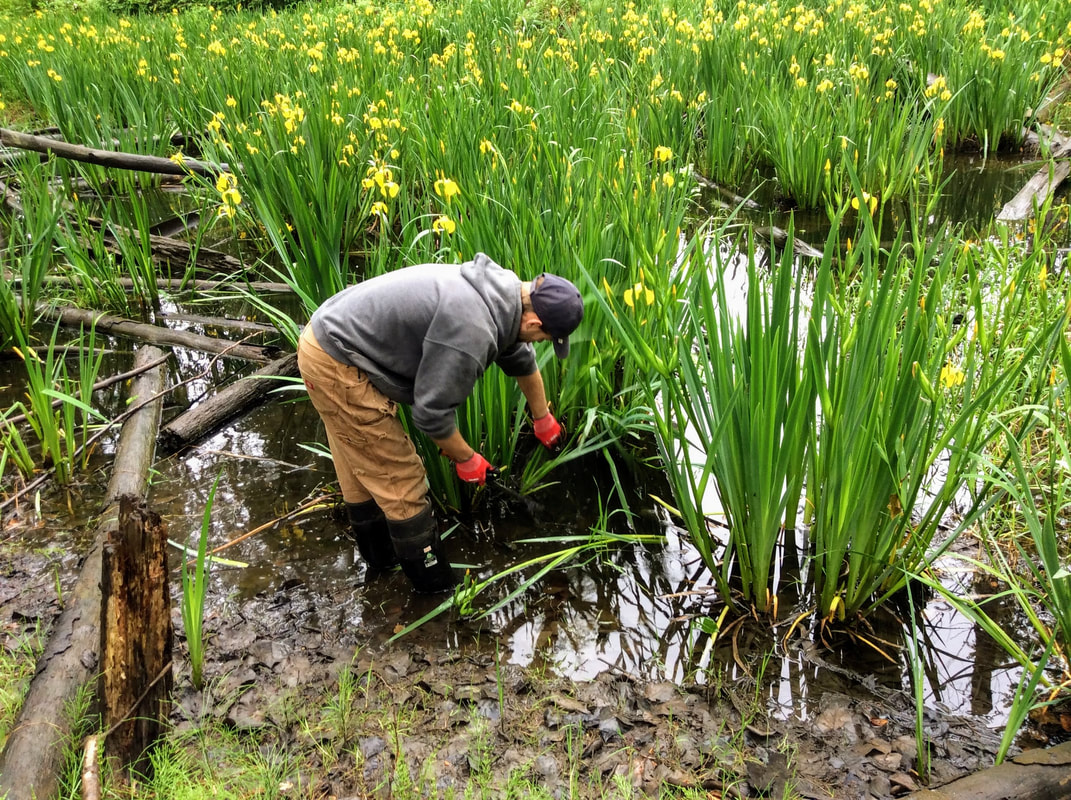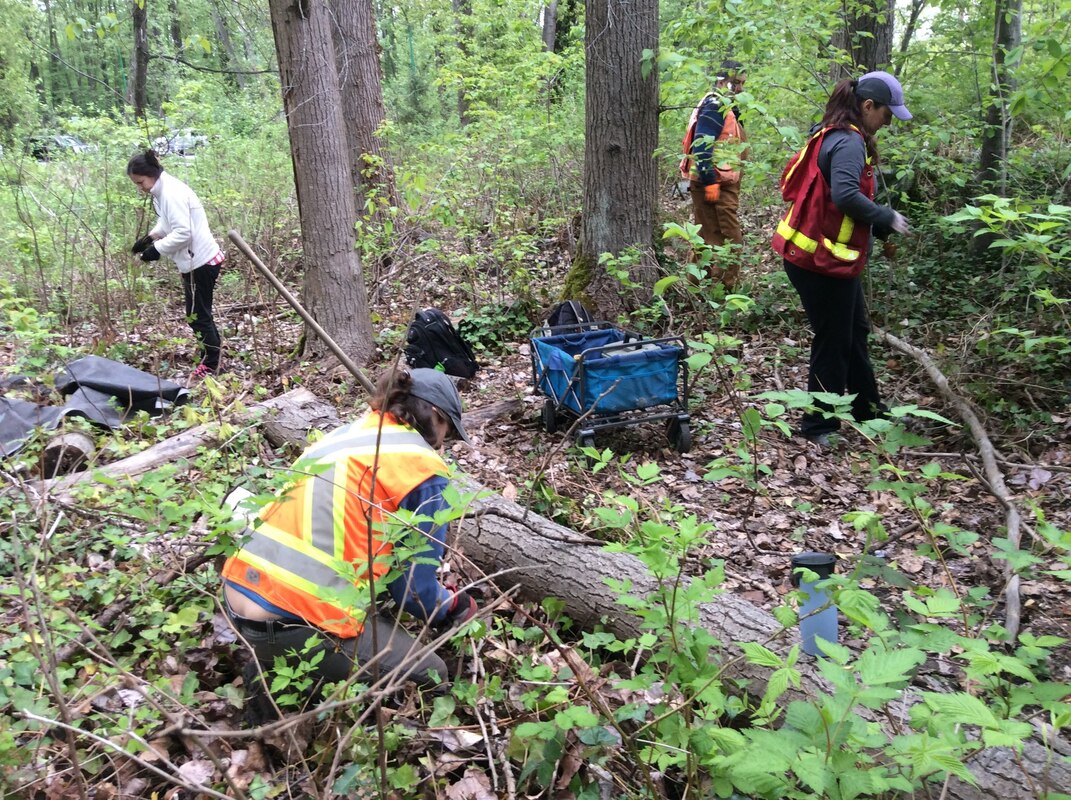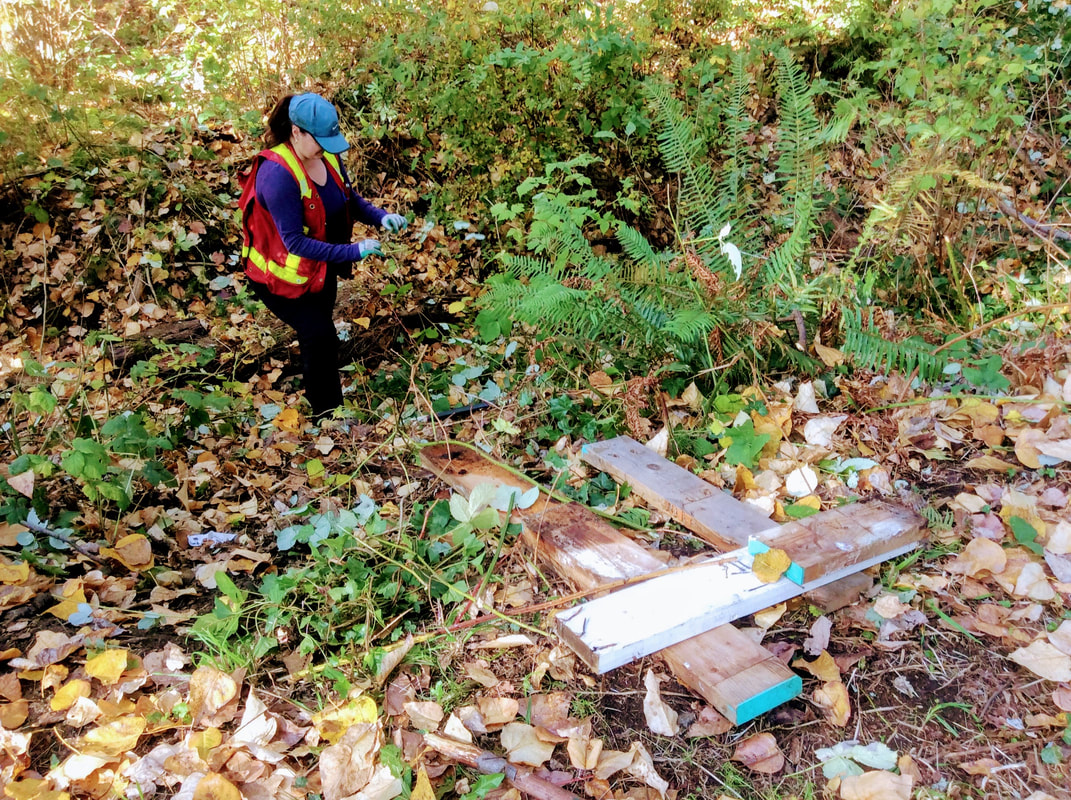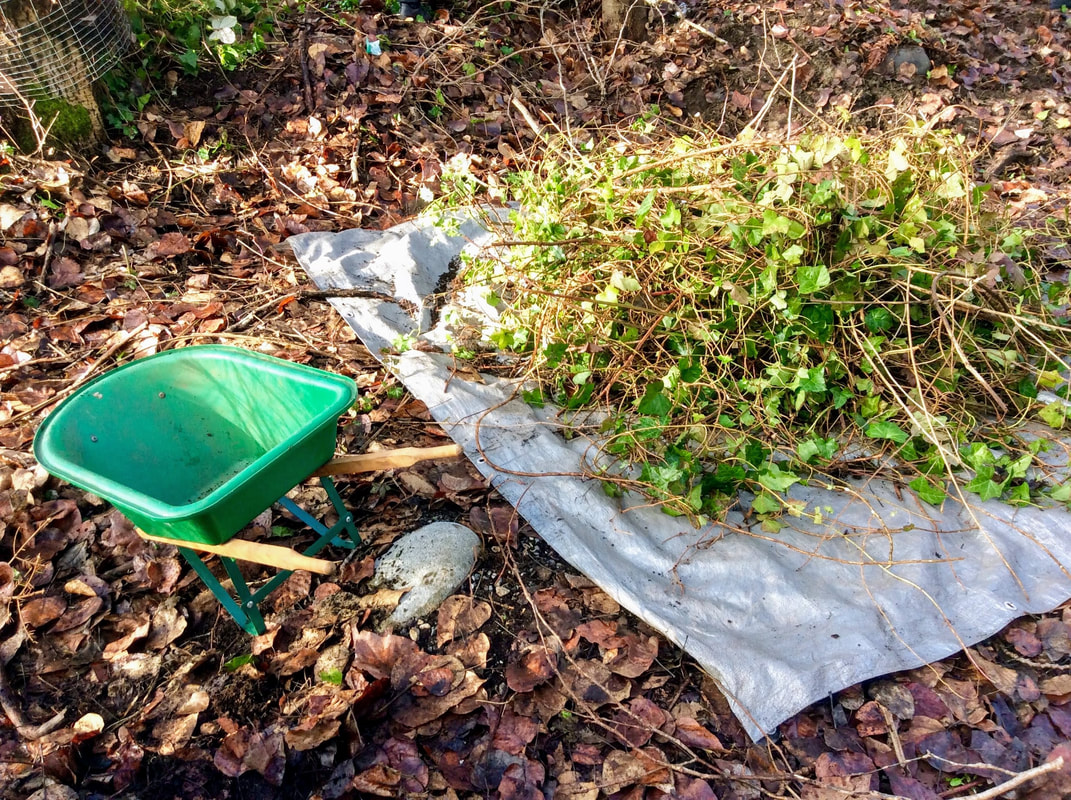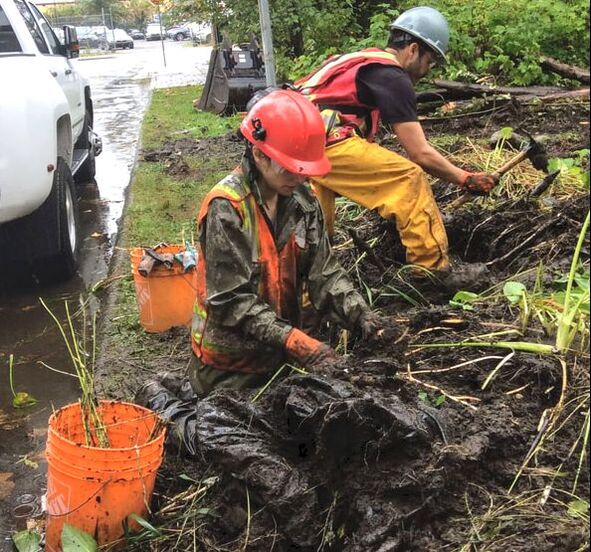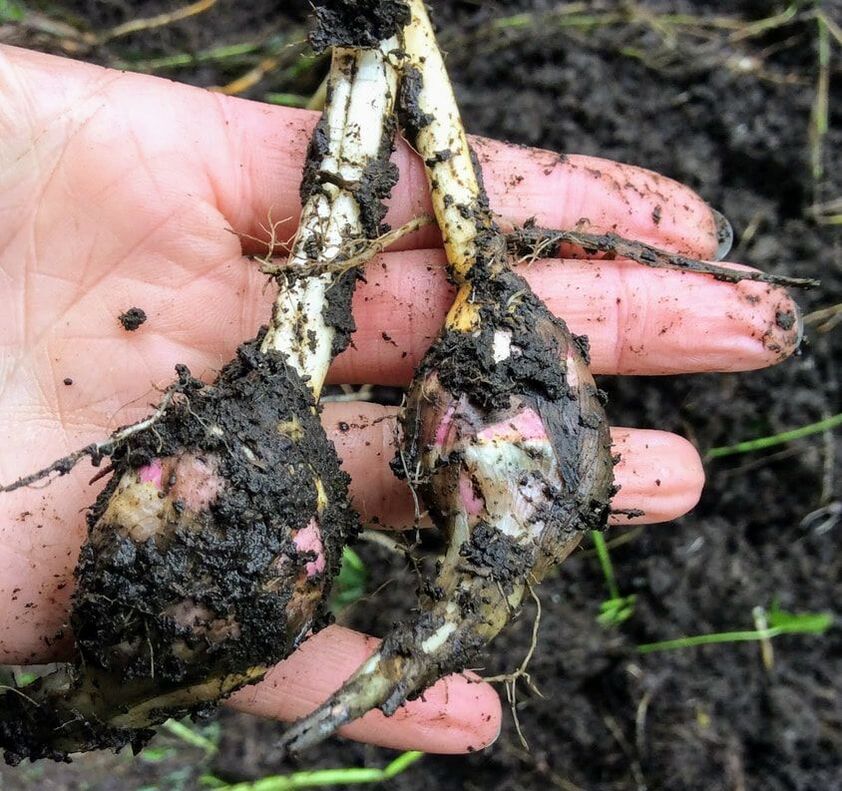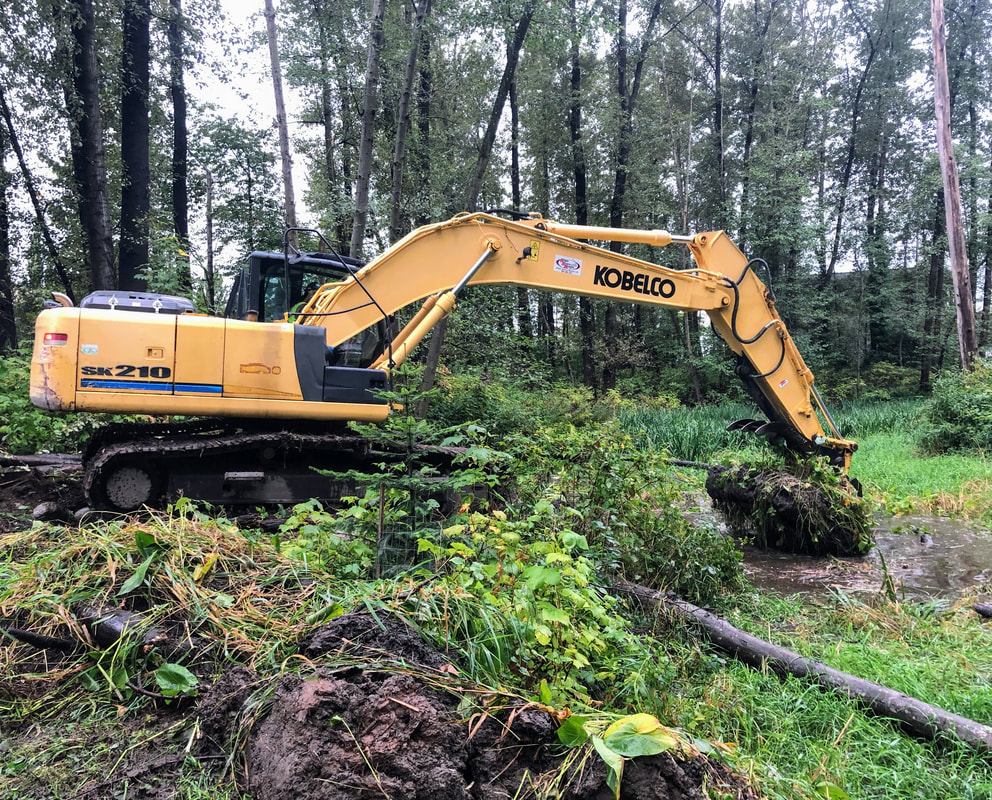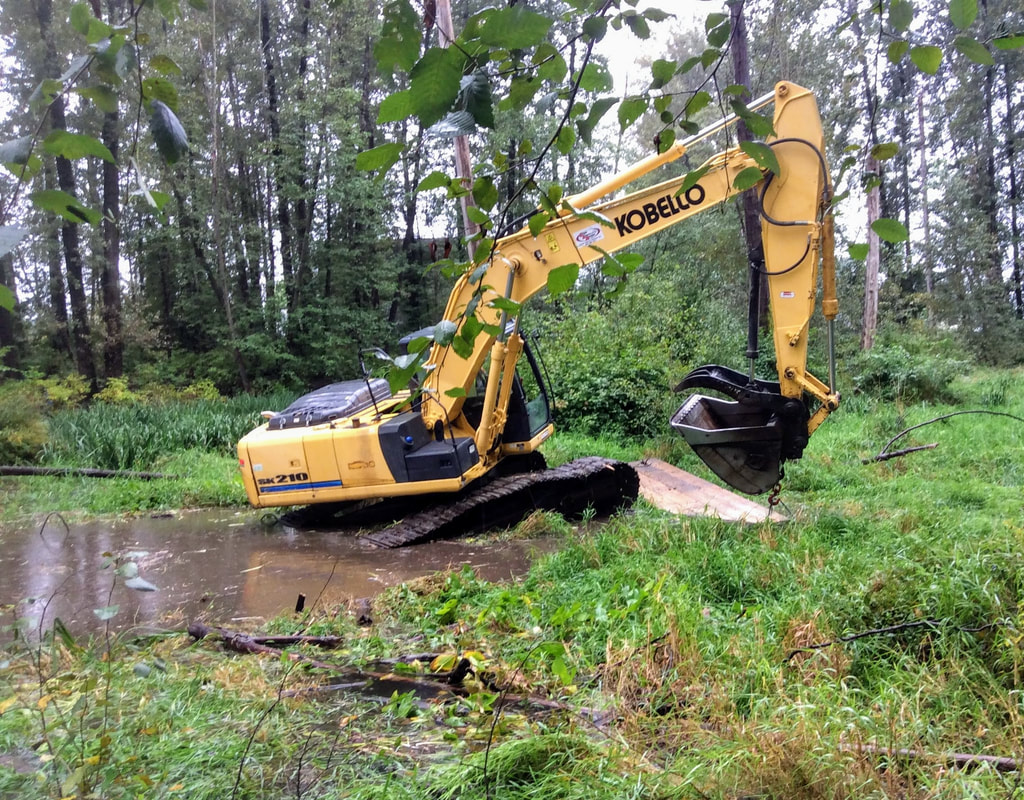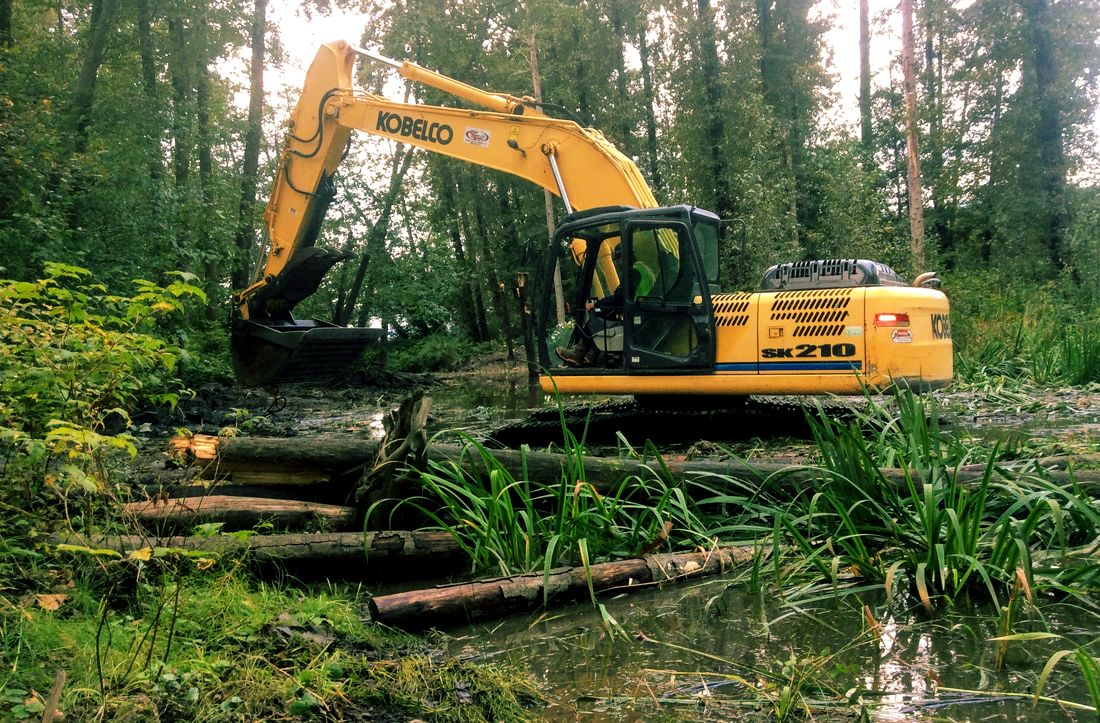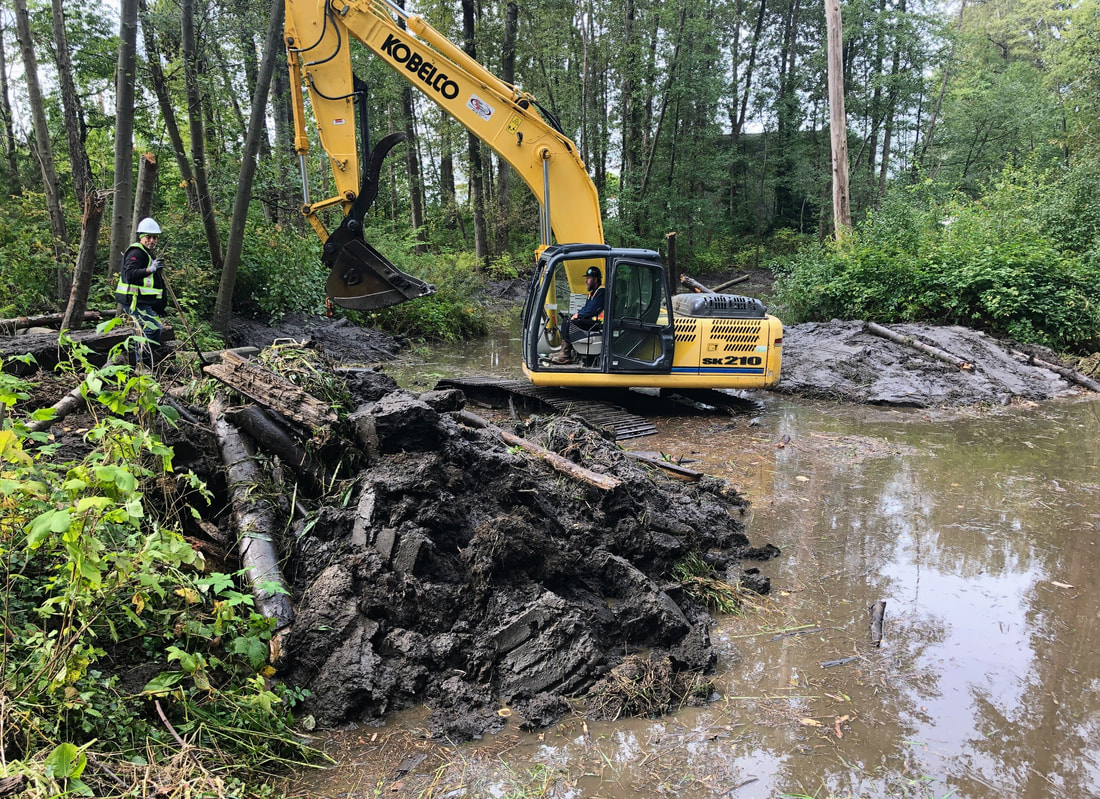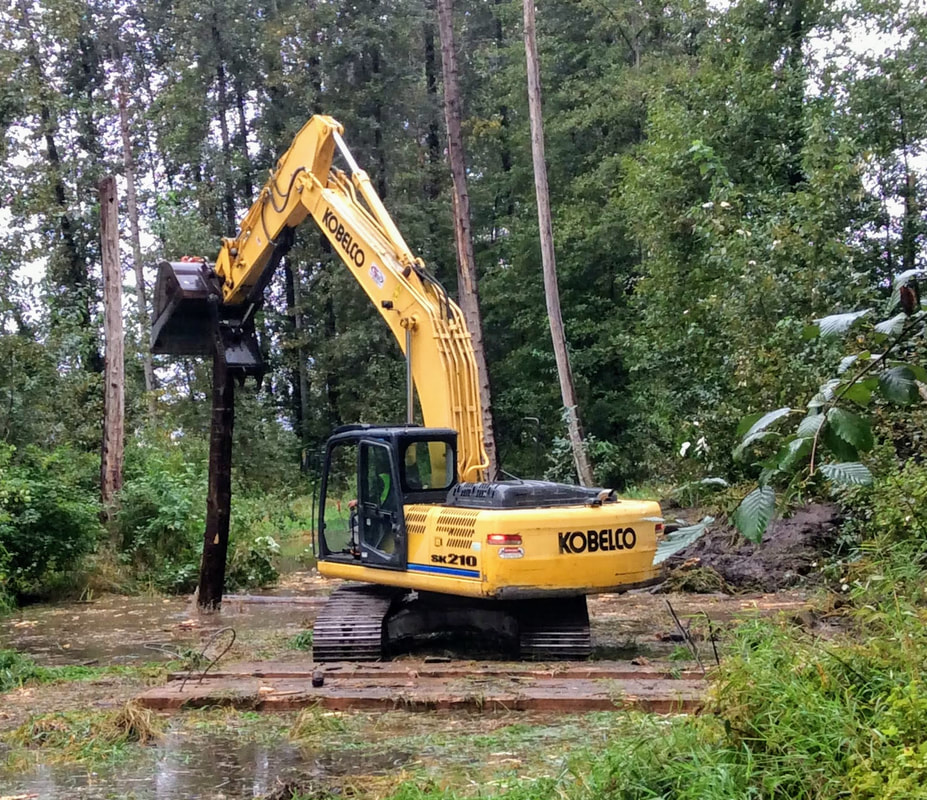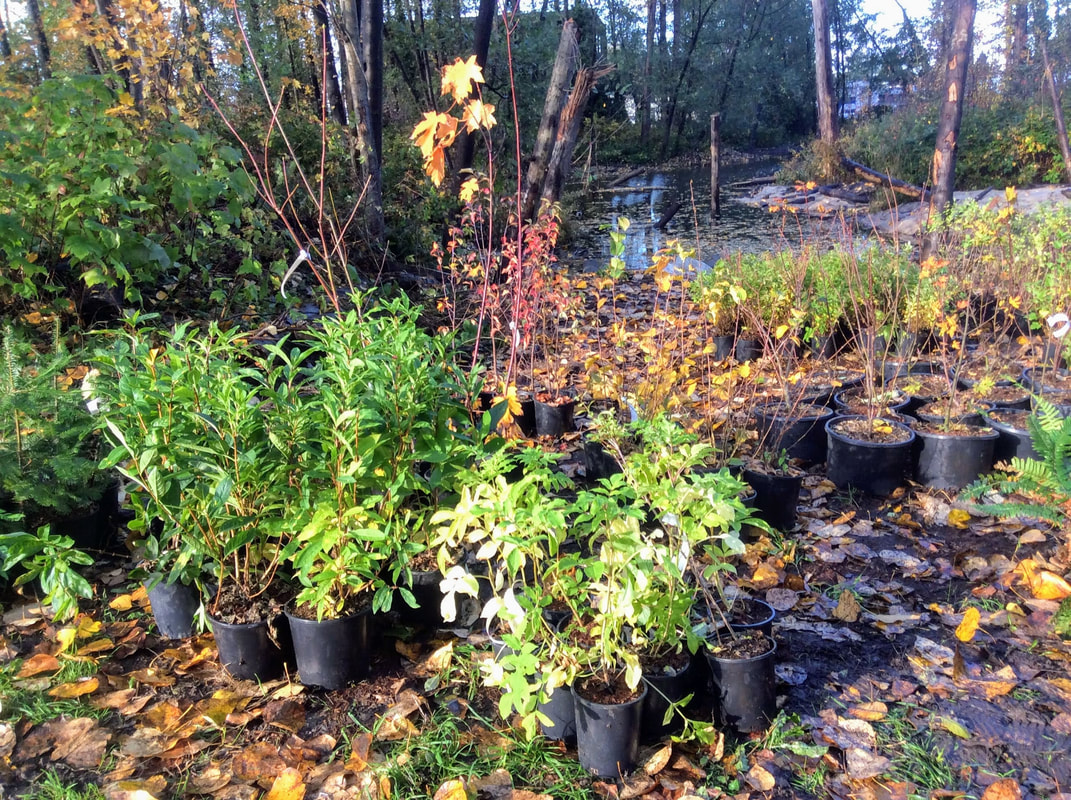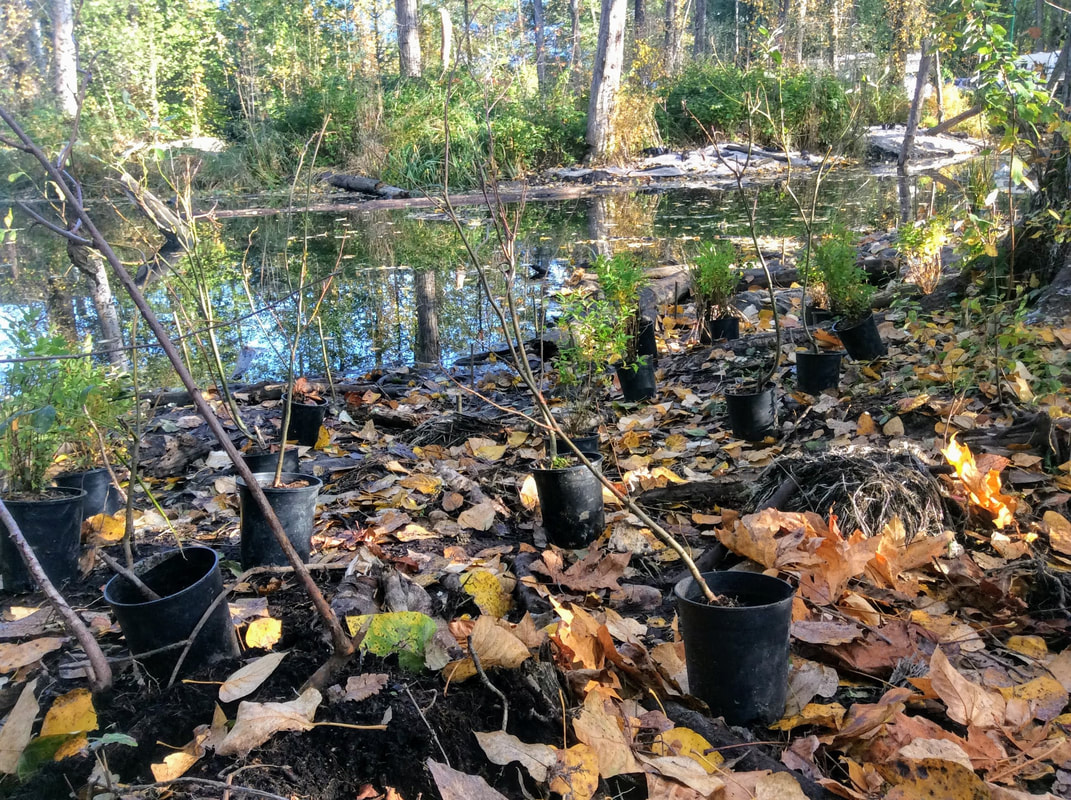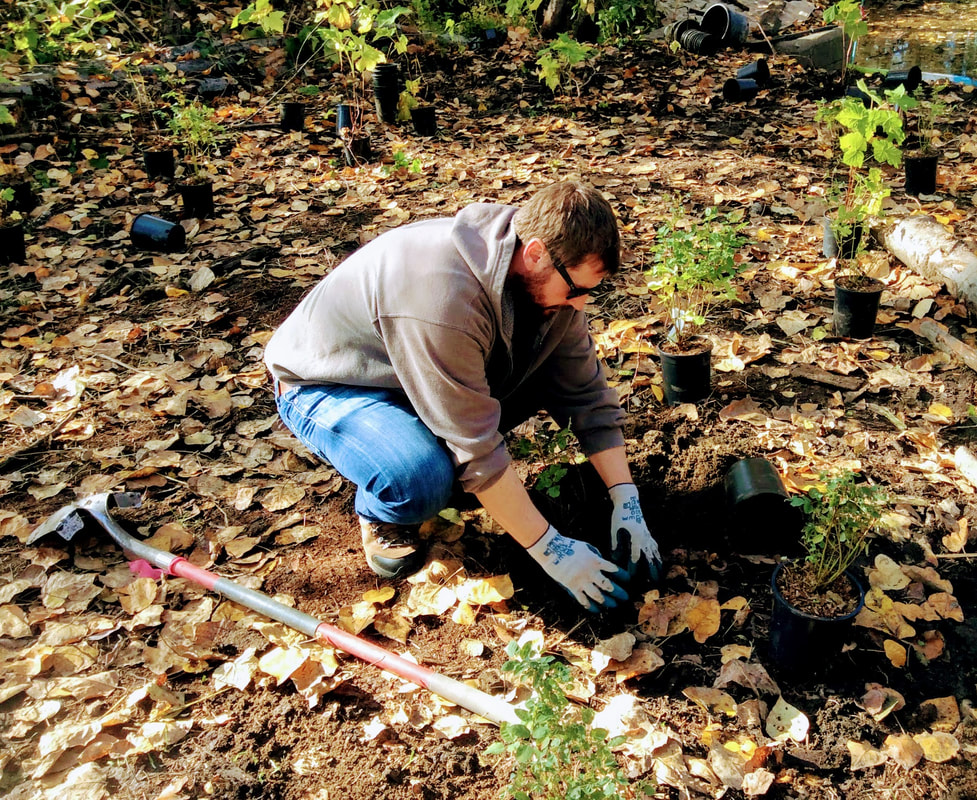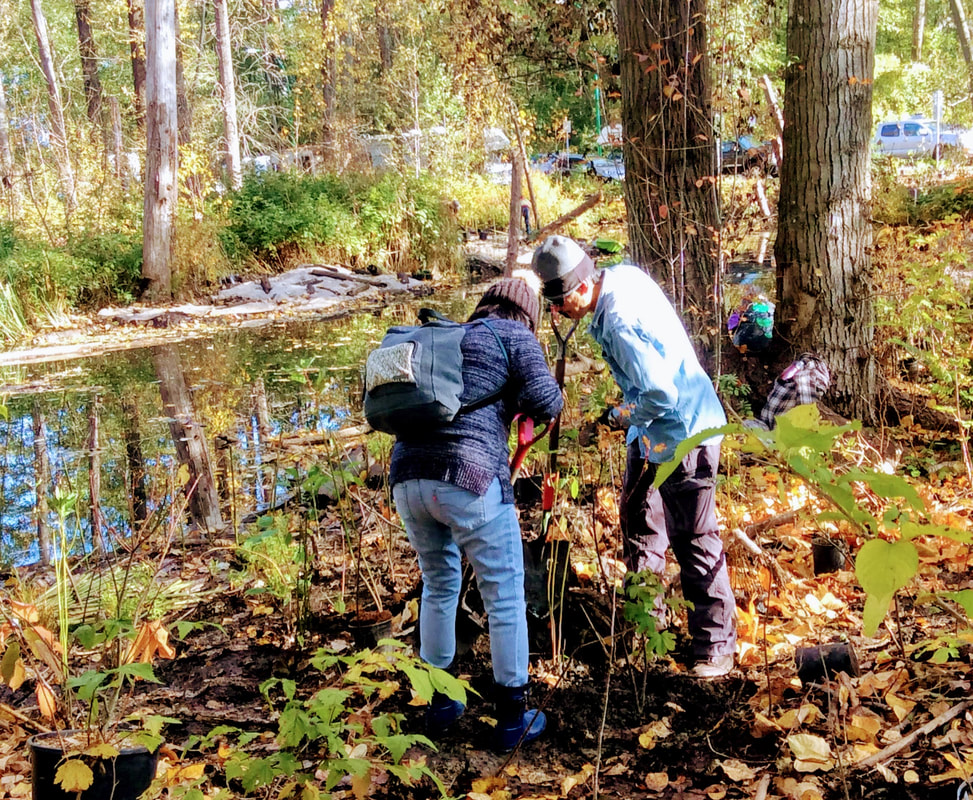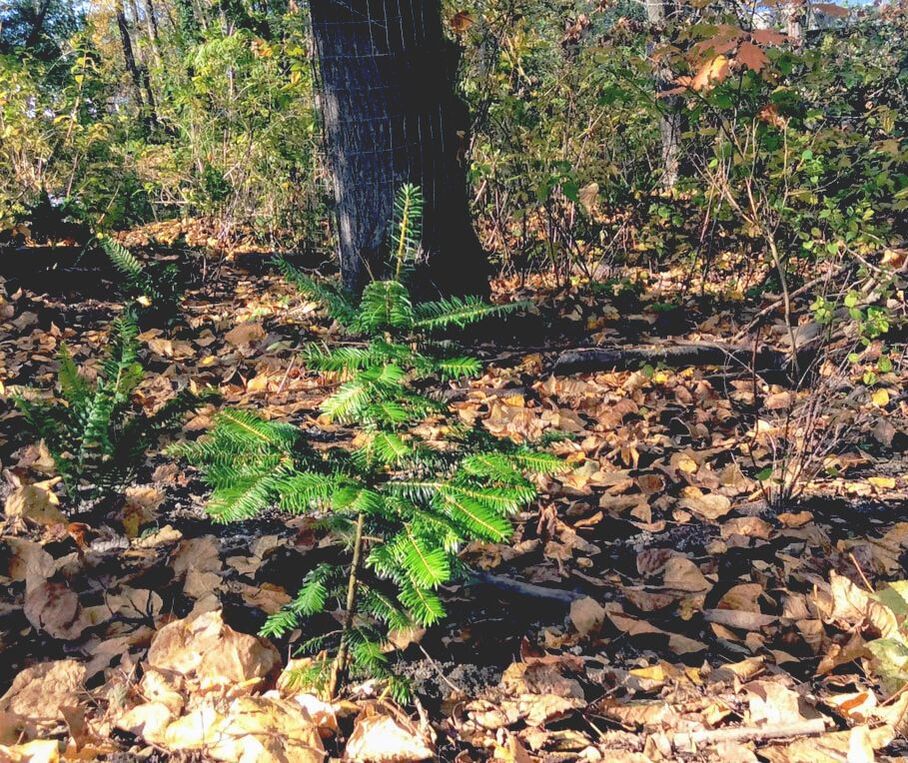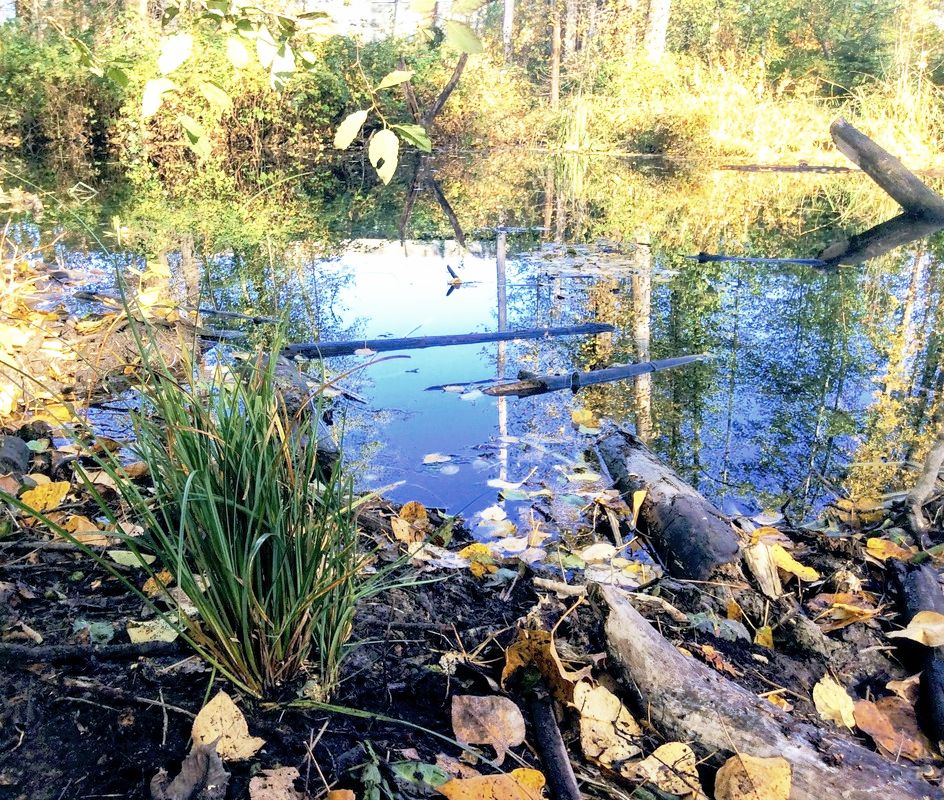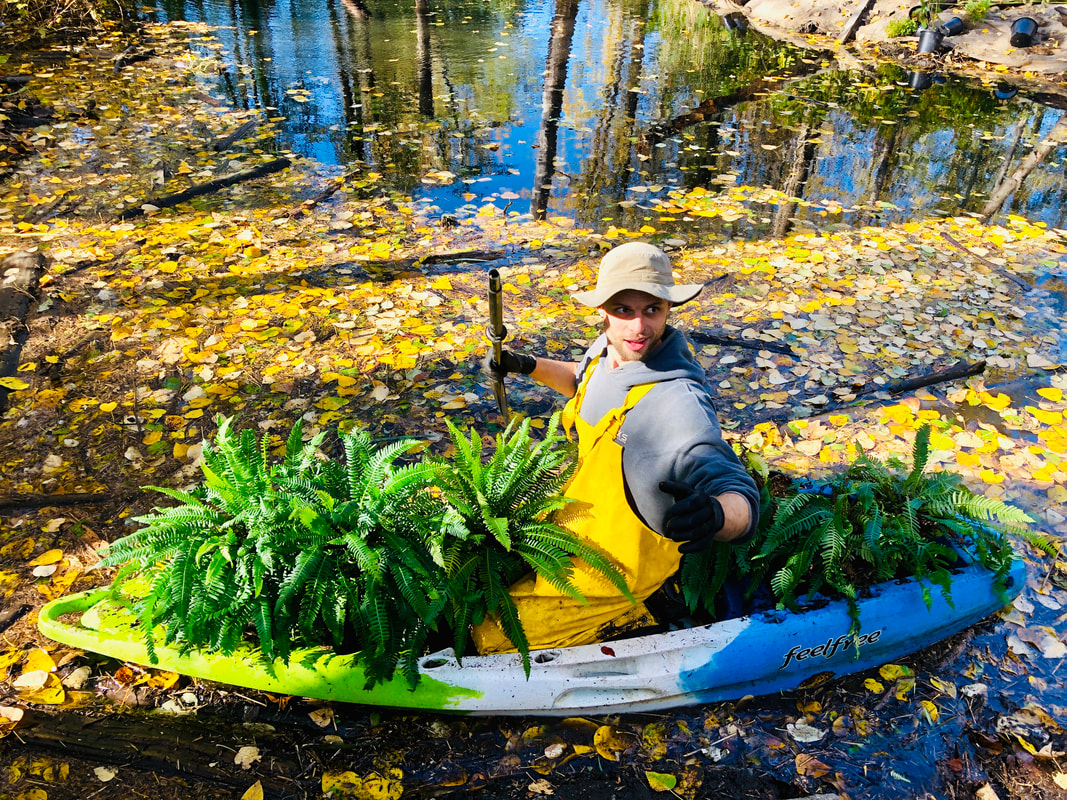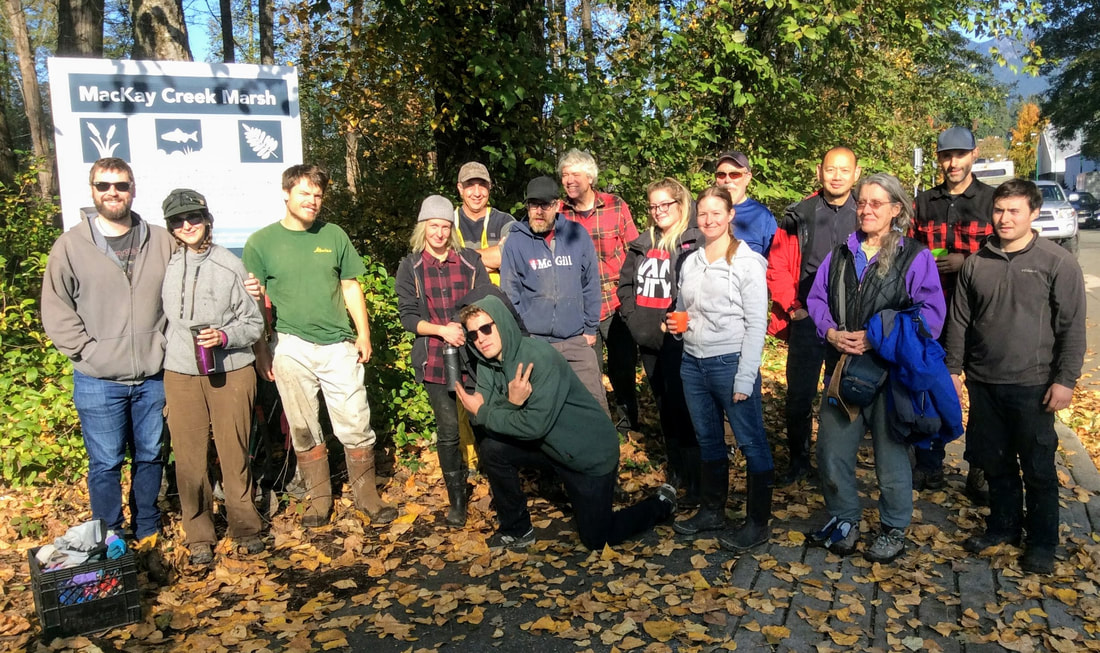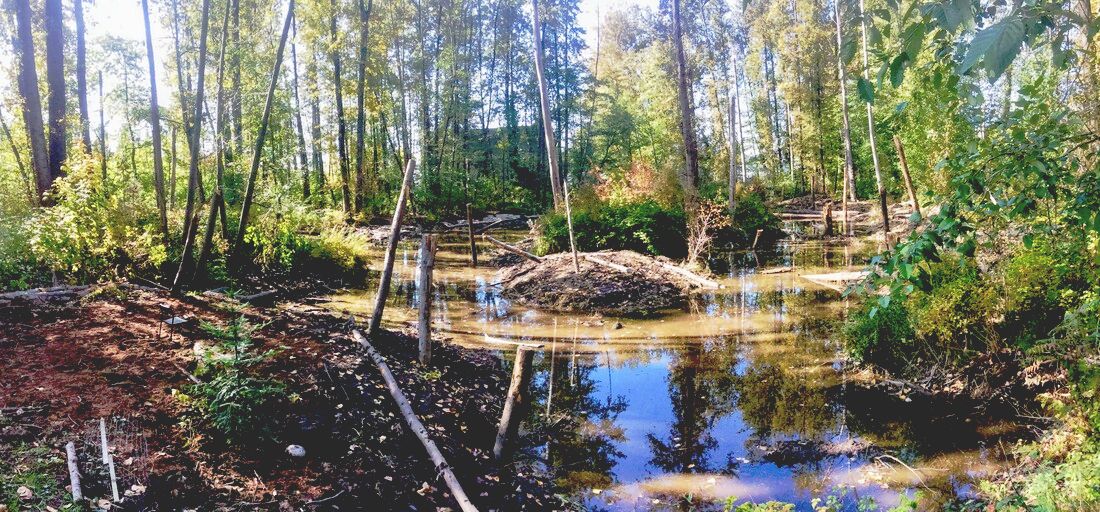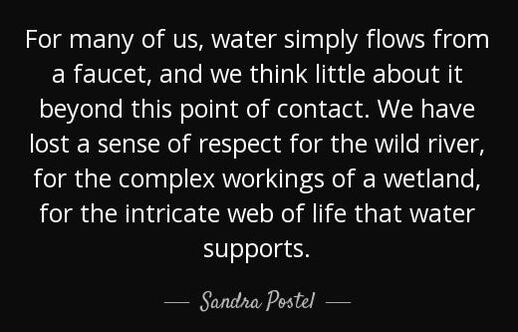|
MacKay Wetland is a large freshwater marsh situated in a highly developed area within the District of North Vancouver. Several automotive repair shops and a bus depot are located along the perimeter of the wetland. Two major roads also run along its boarders. These factors cause significant amounts of pollution to enter the wetland as runoff during rain events. This contaminates the site, as well as the adjacent salmon bearing stream, MacKay Creek. The wetland is also subject to additional threats including illegal dumping and encroaching invasive species. Many individuals in the area use this site as a dumping ground for garbage, as we have found considerable amounts of refuse throughout the marsh. In addition to this, the aquatic and riparian areas of the wetland have been heavily inundated with invasive vegetation including Himalayan blackberry, English ivy, reed canary grass, and yellow flag iris. The overwhelming amount of invasive plants, along with urban garbage, has negatively impacted water quality and reduced habitat availability for fish and wildlife within the wetland. This project has been on our radar for several years now, as MacKay Wetland is a unique and important ecosystem. There are very few urban wetlands left of this size in the Lower Mainland, so it is critical that we allow those that remain to retain as much of their ecological integrity as possible. Wetlands filter sediment and pollution, mitigate flooding, store carbon and provide habitat for many wildlife species. We will need all of these vital ecosystem services in our fight against climate change, which is quickly becoming the new reality. Our group has been working on restoring MacKay Wetland for several years, but the brunt of our efforts have occurred throughout the summer and fall of 2019. Our crew has worked tirelessly for months removing garbage, managing invasive plants, and preparing the area for restoration. A 3000 m2 area of the riparian zone was cleared and prepared for planting during this period. Following the preparation of the riparian area, our crew salvaged wappato tubers (Sagittaria latifolia), which were growing abundantly throughout MacKay Wetland. As these plants have cultural significance to the Coast Salish peoples, we ensured that the tubers were saved so they could be transplanted back into the wetland following the removal of invasive vegetation in the aquatic area. In addition to the manual restoration efforts, we had to bring in some heavy machinery to deal with the invasives overtaking the wetted area of the site. Luckily for us, Vanscape Landscaping & Contracting was up for the job! It took three days of work with the excavator to completely remove the reed canary grass and yellow flag iris which had overtaken the wetland. Once this was completed, we were able to see open water for the first time in years! In the past, MacKay Wetland has remained dry until well into the fall. During our restoration, however, the rain came early, and the area had a significant amount of water as in September. This made it exceptionally difficult for the excavator to move around. Swamp pads (the wooden boards in the image below) were necessary for the machine to remain above the water while excavating out the invasive vegetation. Luckily our excavator driver was highly skilled and managed to remain dry for the duration of the project. There were a few times where we were nervous the excavator would get stuck, but he made it though with no mishaps at all! Having an excavator on site to remove the aquatic invasives was really incredible. Not only did this method allow us to quickly clear away a huge amount of unwanted vegetation, but the excavator driver was also able to stand up several logs, which had fallen in the wetland, so that they could create habitat and roosting opportunities for birds and other wildlife. With the addition of these standing dead logs, we will be able to install several bird and bat houses to this site to further increase the habitat availability in this urban wetland. The final stage of the project was the riparian planting. To complete this, Wildcoast Ecological Society hosted a volunteer event with members of the local community. A total of 23 people came out to help us plant the riparian area surrounding the wetland in October 2019. We couldn't have asked for a better fall day! The sun was shining and everyone was in good spirits to help improve the biodiversity at their local urban wetland. 300 trees and shrubs were planted around the wetland, along with ~100 willow stake, which were used to improve bank stabilization. We are so appreciative to all the volunteers that came out and helped with this project. We couldn't have done it without them! MacKay Wetland looks amazing and it is all thanks to the many hands that came together and made this all possible! Thanks goes to the North Shore Wetland Partners, Wildcoast Ecological Society and the District of North Vancouver, who helped support our work. We would also like to thank our funders, Environment and climate Change Canada, and the Habitat Conservation Trust Foundation, who have given us the ability to do important environmental work within our local communities to engage individuals and help restore critical ecosystems. |
AuthorTara Matthews Archives
June 2022
Categories |
Echo Ecological Enterprises

